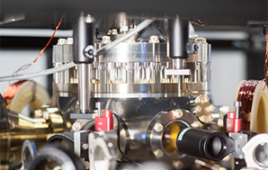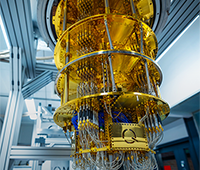High Performance Computing May Improve Combustion Efficiency
Rising oil prices have revved momentum to develop more efficient combustion systems. But instrumental to this goal is a need to achieve greater understanding of the complex chemical reactions involved in combustion processes.
In one of the largest simulations ever brought to bear on this problem, researchers at Pacific Northwest National Laboratory performed quantum chemical calculations to accurately predict the heat of formation of octane, a key component of gasoline.
The calculation — performed using 1,400 parallel processors — took only 23 hours to complete and achieved a sustained efficiency of 75 percent, compared to the 5 to 10 percent efficiency of most codes. For comparison, the best one-processor desktop computer would have required three and a half years and 2.5 terabytes of memory to run the calculation.
These pioneering calculations also helped identify the level of theory needed for subsequent efforts to reliably predict the heat of formation of larger alkanes in diesel fuel, for which there is very little experimental data, and the heat of formation of key reactive intermediates, such as alkyl and alkoxy radicals, for which there is no experimental data.



